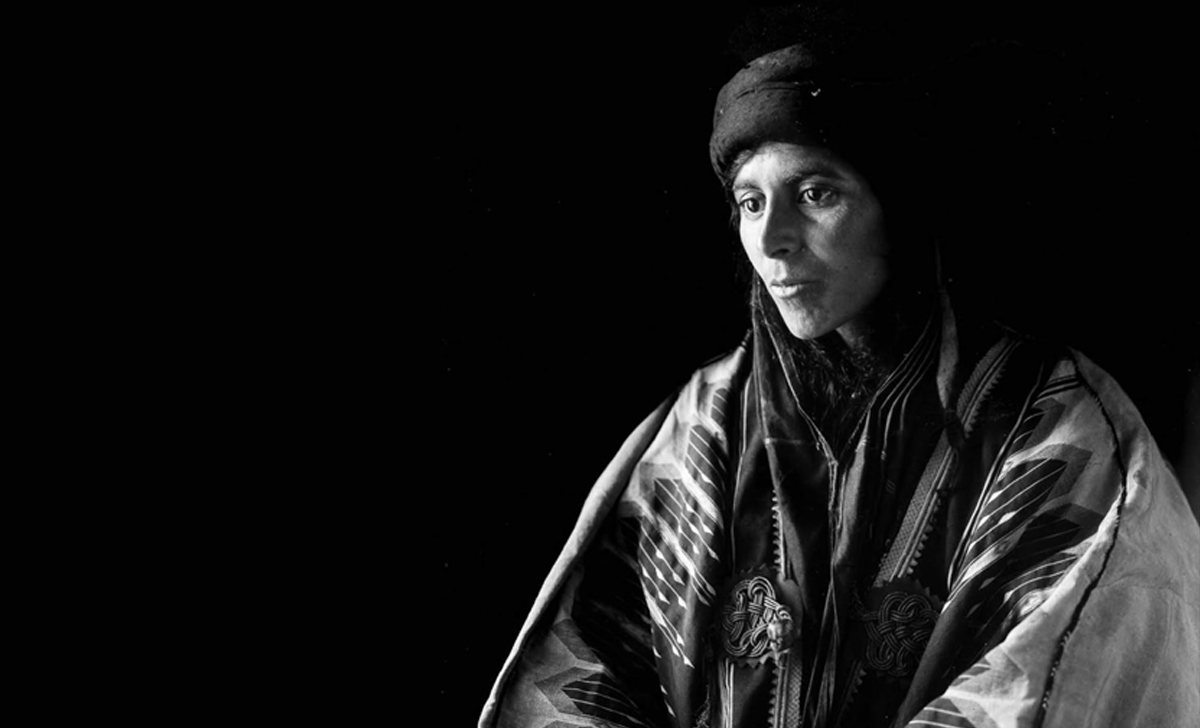
“And Sarah said, "God has made laughter for me;
everyone who hears will laugh over me." -- Genesis 21.6
Recently I have been reading through Genesis 11-25 with a particular focus on the life of Sarah. Sometimes we might wonder if life might be easier if we just had some specific revelation from the Lord. If we ever think that is the case then we should humbly reread the stories of faith, particularly the story of Sarah. We are introduced to her in Genesis 11.29. In that verse, she had a different name - Sarai - meaning my princess. She is described as “Abram’s wife”. She was his princess. The next verse tells us that she was barren and without a child. Abram had been named “father” and he took a wife who was barren. From the beginning, we are warned that this will be a hard journey.
We know that Sarai was ten years younger than Abram, so she began this long, arduous trek when she was sixty-five years old. Traveling to a foreign land was an act of faith for Abram and his princess. Entering the land of other established kingdoms was dangerous. Knowing that Sarai was a beautiful woman, Abram cowardly acted as if he was not married to Sarai. Instead, Abram told Pharoah that she was only his sister, so Pharoah prepared to make her one of his wives. Can you imagine the hurt Sarai experienced from her cowardly husband? Even as the Lord intervenes to protect Sarai (and his promise), Abram financially benefits from this situation and is given great wealth because of her beauty. I wonder how long Sarai took to process this failure of her husband.
In Genesis 16 we’re reminded that Sarai was barren. Perhaps feeling desperate, perhaps still processing this failure of her husband in Egypt, Sarai presents Hagar, her Egyptian servant, to Abram as a second wife. The story makes you wonder if Sarai was testing Abram’s strength to resist this Egyptian woman unlike how he gave in to the pressure of the Egyptian Pharaoh. Abram agreed, a child was conceived, and the contempt of an Egyptian mistress causes Sarai to bring down a curse upon her husband. She says, “May the wrong done to me be on you!” If we slow down, we can almost hear the bitter pain in her voice. The contempt of Hagar was the culmination of years of brokenness; a barren woman married to a man named Father, a fearful abandonment from her husband, and the broken dreams of a kingdom-less “princess.”
By the time we reach Genesis 17, the Lord has now given Sarai a new name - Sarah. At ninety years old God renamed her “the princess”: the princess that would be a mother to God’s people. All the families of the world would be blessed because of this barren, broken mother. The Lord tells Abram (now Abraham) this and Abraham laughs. In the next chapter, Sarah laughs. These are not the laughs of joyous belief, but the laughter of sarcastic disbelief. After all the attempts, the hopes, the pain; will the Lord truly remain faithful to His promises?
In Genesis 20, after what would have taken many years of couples’ counseling, Abraham again is faced with a similar scenario. A different king wants to marry Sarah. Abraham is given an opportunity to hold fast to the Lord’s promise and yet, again, he fails to protect his wife. Again, Abraham lied about Sarah being his wife. Again, the Lord intervened to protect the princess.
From all these many pains and sorrows, emotional scars that had numbed Sarah’s heart, the Lord finally fulfills His promise. In Genesis 21, at the age of ninety, Sarah gives birth to the long-awaited son. The impossible promise came true. Sarah named her son Isaac - “Laughter”. This wasn’t a numbed laughter anymore but an intensely, joyous one. A laughter that came from a broken faith that was realized in God’s faithful work. Sarah would go on to receive 37 years with her son, Isaac. God brought redemption to a mother’s life which had been so filled with sorrow and pain. This is what the Lord does. This is who He is. He redeems our lives, and He establishes our purposes. Many, many years later the author of Hebrews reflected on Sarah’s story with all her brokenness, pain, and sorrow and wrote, “By faith Sarah herself received power to conceive, even when she was past the age, since she considered him faithful who had promised.” (Heb. 11.11). This faith wasn’t because Sarah was in a healthy marriage; it was the Lord who protected her when her husband failed. It wasn’t because Sarah made the right choices; the Lord redeemed Hagar. It wasn’t because Sarah fully trusted in God’s promise; the Lord fulfilled His promises and made her joyously laugh.
The Lord loves broken people. He redeems the lost, He heals the hurting, and He protects the weak. As His people may we learn to love broken people too. And in that love, may we learn to face the broken place of our own hearts and rest in the faithful love of our Lord.







